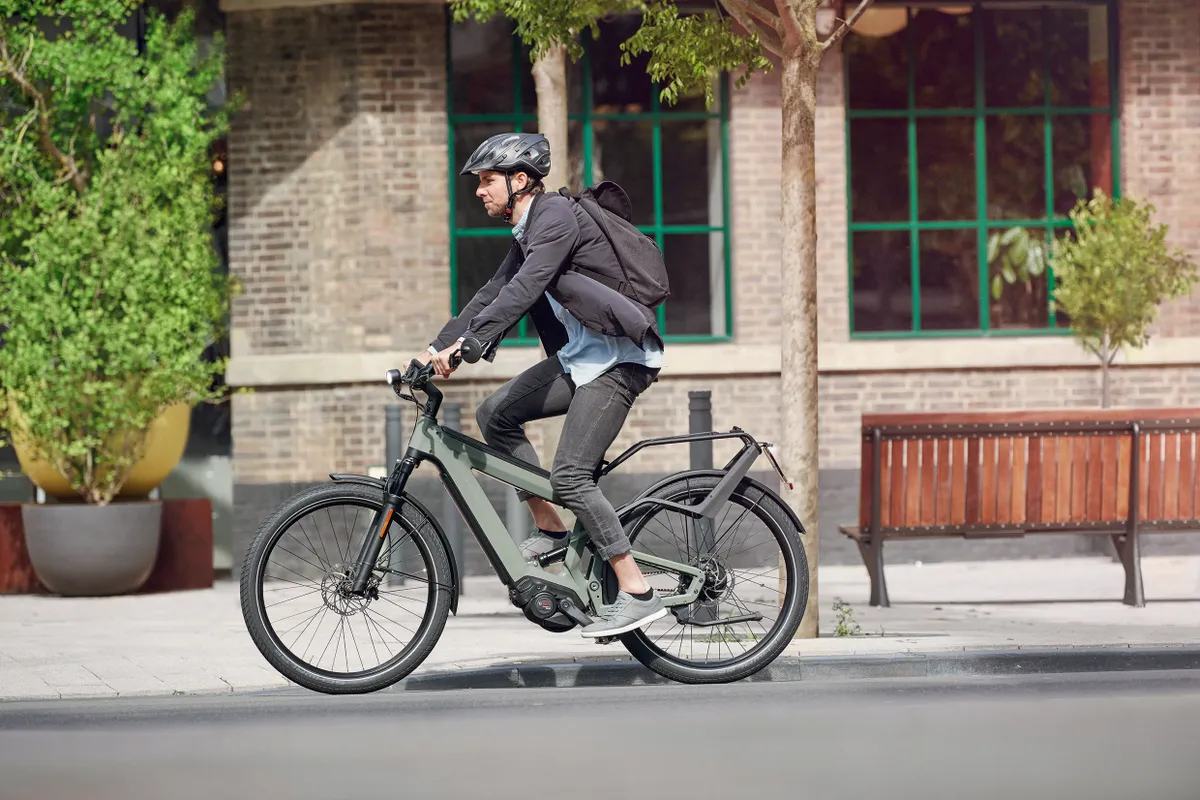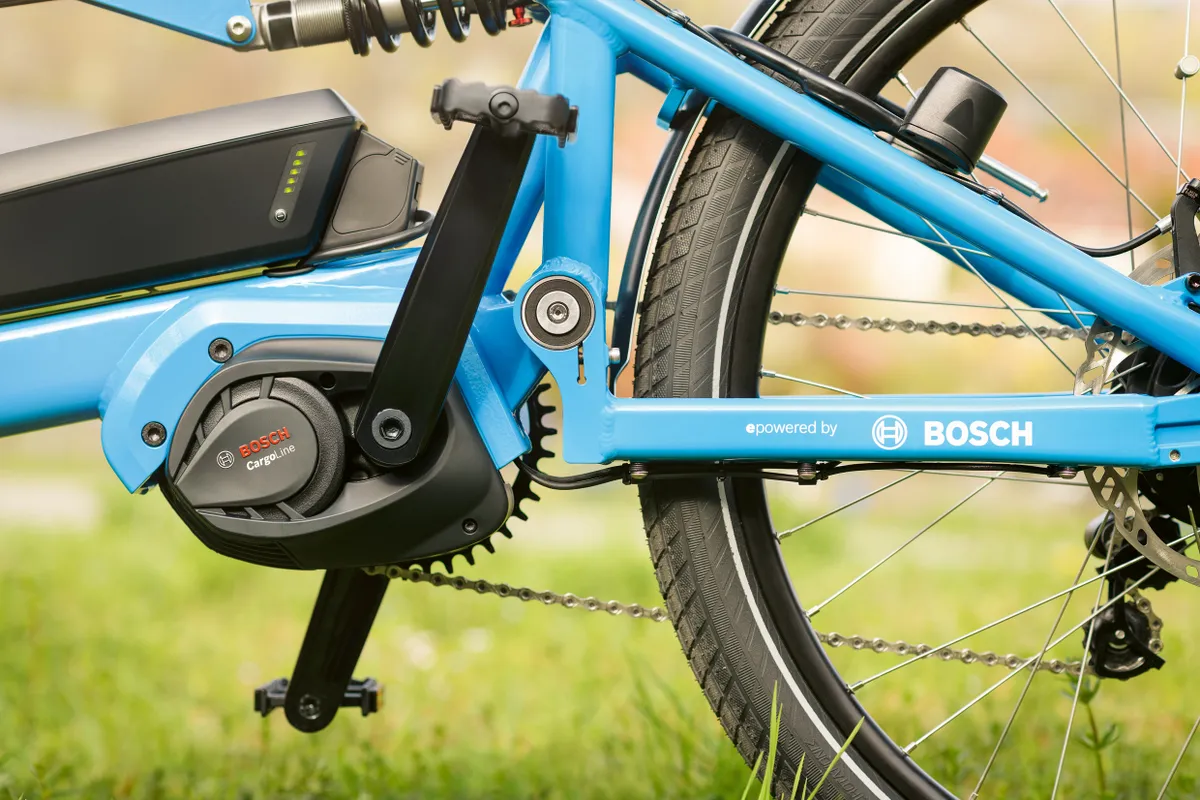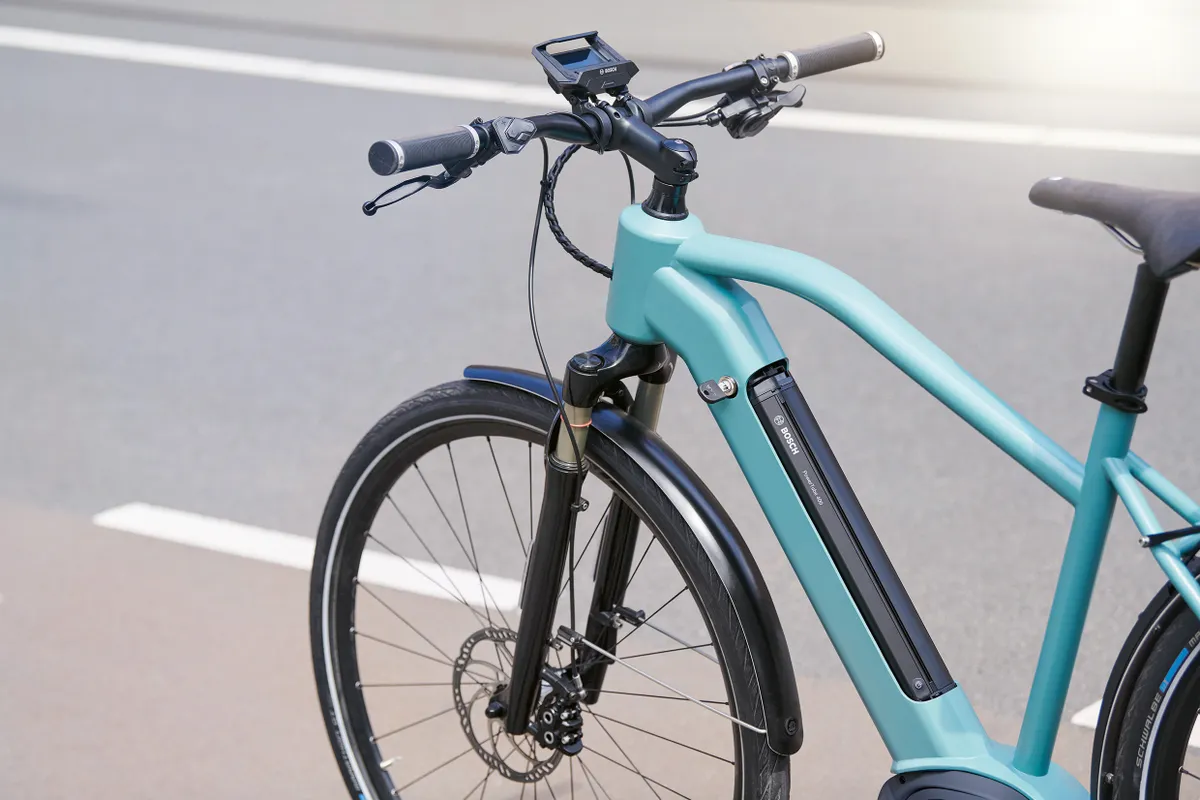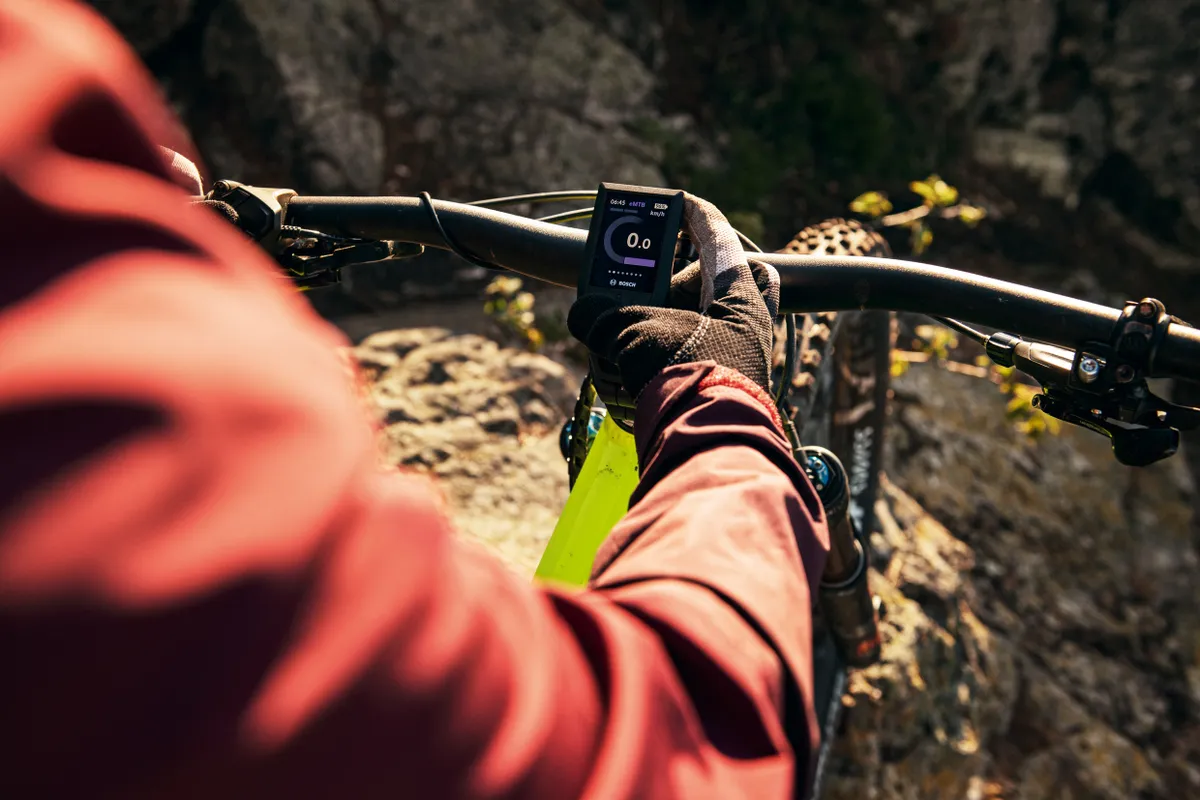In celebration of its tenth year in electric bike motors, Bosch has announced a new range of pedal assist drive units, a smartphone hub, smart lock and anti-tuning software.
With Bosch launching its first e-bike system back in 2010, drive units and batteries have come a long way from the chunky bottom bracket-mounted motors and battery packs that took up the entire front triangle.
And following on from the relaunch of its Active motors last year, the CX motor has now been revamped for 2020.
Bosch Performance Line CX

First and foremost, the size of the motor has been cut nearly in half and is now claimed to weigh just 2.9kg, or 25 percent less than its predecessor, thanks in part to a new magnesium housing.
Claus Fleischer, CEO of Bosch e-bike Systems said: "The compact size of the Drive Unit allows bicycle manufacturers to better integrate the drive system and build frames with shorter chainstays. The weight of the eMTBs is also reduced. As a result, the bikes are just as manoeuvrable and agile as mountain bikes without an electric drive and also offer a clear advantage in riding enjoyment."
According to Bosch, the new drive unit allows for direct mount or 104 BCD chainrings, and the Q-Factor has been narrowed to 175mm.
Bosch has also added a new freewheel by moving the crank towards the back of the drive unit, which completely decouples the motor and transmission when outrunning the 25kph limit or when the battery dies, for a more natural ride feel.
With a 75Nm output, the new motor is claimed to offer max-assistance of 340 percent of your pedalling input, up from 300 percent.
Bosch also says it’s put a lot of work into how the power is delivered and eliminated the initial 'jerk' with a new multi-sensor concept that improves how the motor reacts to low cadence, changes in pace or sustained climbs.
Bosch Performance Line

Bosch has also updated its Performance Line of motors. Falling in just below the Performance CX line, the Performance motors offer a max torque of 65Nm and up to 300 percent of your pedalling input. They don't get the new compact size factor, but are claimed to weigh just 2.9kg.
The new Performance Line motors have also been updated to a standard chainring design instead of the small drive ring we’ve seen in previous units. Bosch also says it will offer the Performance motor in a ‘speed’ version which will top out at 45kph of assistance — greatly exceeding the 25kph legal limit in most regions.
Bosch cargo bike line

Cargo bikes are arguably one of the best applications for a pedal assist motor, and whether bringing a week's worth of groceries home or have your kids or dogs in toe, redesigned motors are here to help lighten the load.
With a permissible total weight of 250kg, the new Cargo motor offers up to 75Nm of torque and 400 percent pedal input assist.
Like the Performance CX motor, the unit has been downsized and the pedal axle has been moved back. Bosch is claiming it weighs just 2.9kg.
The brand says that for its Cargo motors it focused on assistance at the lower end of the cadence spectrum to help you get your load moving from a stop or over the crest of that hill on your way home from the shops.
Like the Performance motors, Bosch is offering the Cargo units in 25kph limited and a 45kph limited ‘speed’ version, though availability will likely be subject to local regulations.
Bosch has also wired the Cargo motors to allow for two batteries to connect simultaneously for an extended range, possibly giving delivery drivers, couriers and others a more sustainable transport and hauling option and to relieve urban congestion.
According to the VCD mobility pressure group, someone travelling 20km a day in city traffic on a cargo bike instead of a small car will save around 800 kilograms of CO2 a year. A study by the Polytechnic University of Milan furthers this point showing that three eCargo bikes could replace a delivery van for the daily transport of goods in town and city centres.
Bosch PowerTube 625 and 400

To keep these pedal assist motors juiced up and ready to roll, Bosch has also announced a new lithium-ion battery pack.
According to Bosch, the 625-watt battery weighs 3.5kg, and when used in combination with the brand’s fast charger can go from flat to 100 percent in 3.7 hours.
The smaller 400 watt PowerTube 400 is claimed to weigh 2.9kg, and Bosch says it has sufficient energy for city trips or short rides ‘to the countryside'. Bosch hasn't specified charging time for the smaller battery pack.
Kiox update and Cobi smartphone hub

The Kiox head unit has also received a once over. While the device looks the same, it can now pair with the e-bike Connect app for over the air firmware updates, wireless ride uploads, and connect a Bluetooth heart rate monitor.
Should you have Fox’s new Live Valve suspension on your e-MTB, it can be controlled directly from the Kiox unit too.
Bosch has also added a smart ‘lock’ function, which disables the motor when the head unit is removed from the bike, and only reactivates when the same computer is reinstalled.
While it’s not a ‘lock’ per se, it turns an e-bike into just a really heavy bike, the idea being that it makes it a less valuable target for thieves.
You can also use your smartphone as the e-bike's head unit through the COBI.Bike app. The app also allows for mapping, weather, connections to Bluetooth sensors and plays nice with third-party apps such as Strava, Komoot, Google Fit and Apple Health.
The smartphone hub allows for your phone or any other USB chargeable device to use power from the Bosch battery pack too.
Tuned no more
In about three minutes on YouTube you can learn how to disable speed restrictions on any e-bike motor, however it appears Bosch is trying to put a stop to the practice with its 2020 drive units.
Using a combination of software and sensors it can now detect if the system has been tuned and triggers an error message that switches the motor into limp mode, which will reset itself 90 minutes later.
If the motor goes into limp mode because of tuning three times, you'll have to take your bike to a Bosch dealer to have it reset with its diagnostic tool. Bosch sees this as a way to avoid further restrictions on e-bikes.
"We are persistently fighting the practice of tuning and are continuing to develop our technology further. It is important to us that e-bikes — in other words pedelecs with maximum support of 25 kph — continue to be classified as bicycles in future, with all the associated rights and obligations," Fleischer said.
"If cyclists tamper with their e-bikes by tuning them, thereby risking possible accidents and injuries, this will give rise to policies that include more stringent regulations and future bans. This would cancel out the benefits that all other e-bike fans are able to enjoy. Tuning is completely unnecessary for fully enjoying everything that e-bikes have to offer. On the contrary: any tuning ruins the real fun of it all — whether on a relaxed cruise, or pursuing sport riding fair and square."